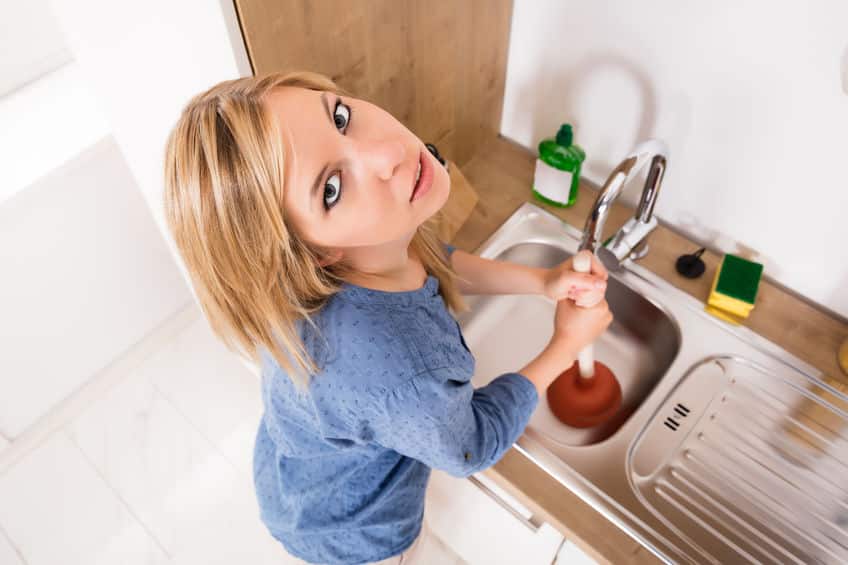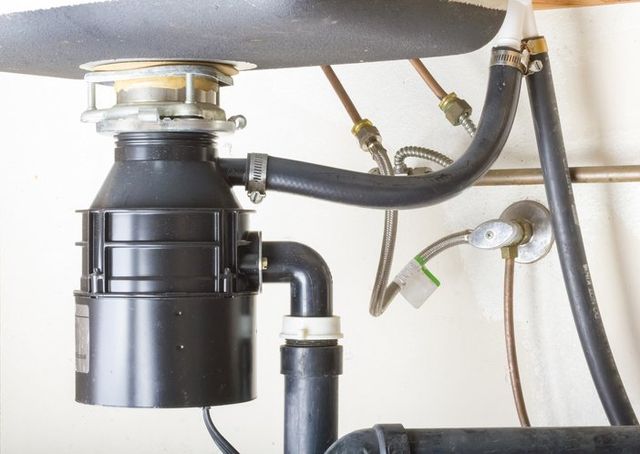The Comprehensive Guide to Fixing a Leaky Garbage Disposal
The Comprehensive Guide to Fixing a Leaky Garbage Disposal
Blog Article
Just how do you actually feel in regards to Why Is ?

Garbage disposals are crucial kitchen home appliances that assist in dealing with food waste effectively. Nevertheless, a leaking waste disposal unit can be an irritating and untidy problem to deal with. Thankfully, many leaks can be fixed easily with a couple of simple steps. In this post, we will certainly review exactly how to take care of a dripping waste disposal unit effectively.
Intro
Waste disposal unit are mounted under cooking area sinks and are developed to shred food waste right into smaller pieces, permitting it to travel through the plumbing system quickly. While these gadgets are usually reputable, leaks can happen in time because of deterioration, loose connections, or damage to the unit.
Step-by-Step Overview to Repairing a Leaking Garbage Disposal
Turn Off the Power
Prior to trying any type of repair services, guarantee that the power to the garbage disposal device is switched off to avoid the risk of electric shock.
Situate the Leak
Identify the specific place of the leak and establish the reason
Tighten Links
Utilize a wrench to tighten any kind of loosened connections in between the disposal system and the plumbing system.
Change Seals or Gaskets
If the leakage is because of worn seals or gaskets, eliminate the old elements and change them with brand-new ones.
Patching Splits or Openings
For fractures or openings in the disposal system, usage epoxy or a suitable patching material to seal the broken location.
Determining the Source of the Leakage
Prior to attempting to deal with a leaking waste disposal unit, it is important to determine the resource of the leak. This can normally be done with aesthetic evaluation or by conducting basic examinations.
Visual Assessment
Inspect the waste disposal unit system meticulously for any type of indicators of water leakage. Pay very close attention to locations around seals, gaskets, and link factors.
Examining for Leakages
One method to test for leaks is by running water via the disposal unit and looking for any type of noticeable signs of leak.
Usual Reasons For Leaks in Waste Disposals
Worn Seals and Gaskets
Seals and gaskets play a crucial duty in avoiding water from dripping out of the waste disposal unit. In time, these parts can weaken, bring about leaks around the disposal system.
Loose Links
The links between the waste disposal unit and the plumbing system can come to be loosened with time, triggering water to leakage out during operation.
Cracks or Holes in the Disposal Unit
Physical damage to the garbage disposal, such as splits or openings in the housing, can additionally result in leakages.
Tools and Products Needed for Fixing a Dripping Waste Disposal Unit
Prior to starting the fixing procedure, collect the essential devices and products, including a screwdriver, adjustable wrench, plumbing technician's putty, replacement seals or gaskets, and epoxy or patching product for repairing splits or openings.
Examining the Garbage Disposal After Repair Work
Once the repair work is complete, test the garbage disposal by running water with it to make sure that the leakage has actually been dealt with.
Preventive Upkeep Tips to Stay Clear Of Future Leakages
To avoid future leaks, it is important to carry out normal upkeep on your garbage disposal. This includes keeping it tidy, preventing putting non-food products or hard things down the disposal, and occasionally looking for leaks or other concerns.
Verdict
To conclude, repairing a leaking waste disposal unit is a fairly straightforward procedure that can be finished with standard tools and materials. By adhering to the steps outlined in this write-up and exercising preventive maintenance, you can maintain your waste disposal unit in good working condition and avoid pricey repairs in the future.
What to Do About a Leaking Garbage Disposal
A leaking garbage disposal often goes unnoticed until you confront a sopping cabinet, a foul-smelling puddle, or an audible drip-drip-drip from the unit. The fix can be frustrating, too, because the leak can stem from a number of components in the system. Fortunately, with a little sleuthing, you can zero in on the leak and—depending on the exact location—stop the icky oozing and repair the component that caused it. Worst case scenario, if it turns out that the garbage disposal must be replaced, installing a new one is a reasonable do-it-yourself task for those with basic plumbing skills. Read on to keep the cash you’d otherwise hand over to a pro.
Prepare to find the leak
Prior to testing the garbage disposal for leaks, unplug it at the wall outlet and turn off the power from the breaker box to prevent electrical shock. Then insert a watertight sink stopper into your sink drain and wipe the unit dry with a clean cloth. In any handy container, mix a few drops of food coloring into a few cups of water, and pour the dyed water onto the sink stopper to help you locate the leak.
Investigate the source
the top, where the disposal meets the sink drain the side, where the dishwasher hose or main drain pipe connects to the disposal or the bottom of the unit Inspect each of these locations while gliding a light-colored rag over the unit; the dyed water will readily show on the rag and reveal the location of the leak. If a leak isn’t immediately apparent, remove the sink stopper and pour a few more cups of dyed water down the sink drain, then check for leaks again. Leaks near the top of the unit are more likely to show themselves while the sink is plugged, while side and bottom leaks are more noticeable while the sink is unplugged.
The metal sink flange that sits directly inside the sink drain is typically sealed around the top with plumber’s putty (a clay-like sealant) and then secured from under the sink with bolts. If the plumber’s putty deteriorates, or the bolts loosen, the flange can no longer form a watertight seal between the sink drain and the disposal—which could cause a leak at the top of the unit.
To reseal the leaky flange, you must first detach the garbage disposal. Start by loosening the screws securing the main drain pipe to the disposal, then loosen the screws in the metal clamp securing the dishwasher hose to the disposal and detach the drain pipe and dishwasher hose from the disposal. Loosen the screws in the mounting ring that connects the disposal to the metal mounting assembly beneath the sink, then pull down the disposal and carefully set it on a clean, dry surface. Loosen the bolts in the mounting assembly with a wrench, then pull down the mounting assembly and set it near the disposal.

I'm certainly very involved in Why Is My Garbage Disposal Leaking From the Bottom? and I am hoping you enjoyed reading the blog post. For those who liked our page kindly do not forget to pass it around. Thank you so much for your time invested reading it.
Book Now! Report this page